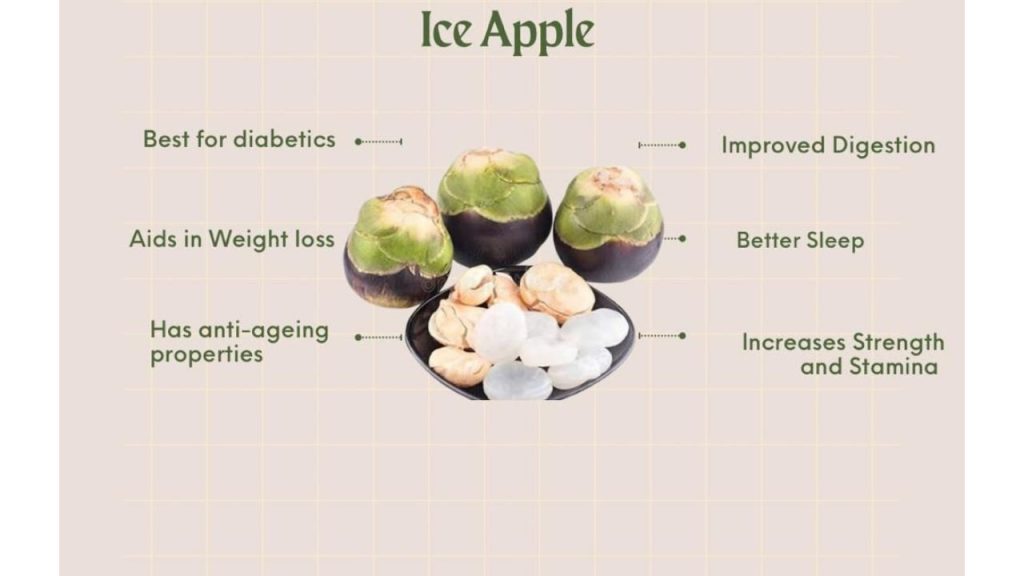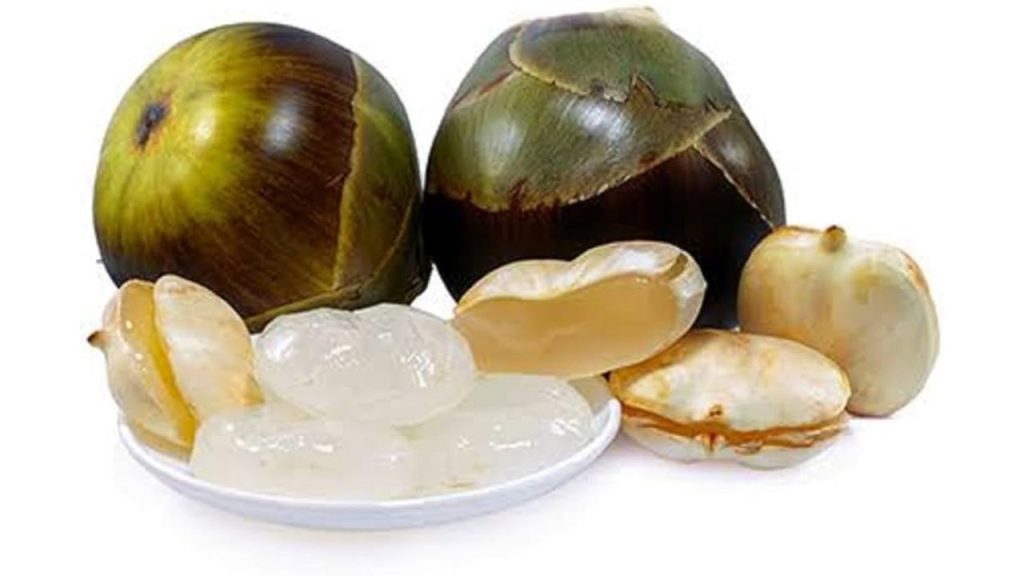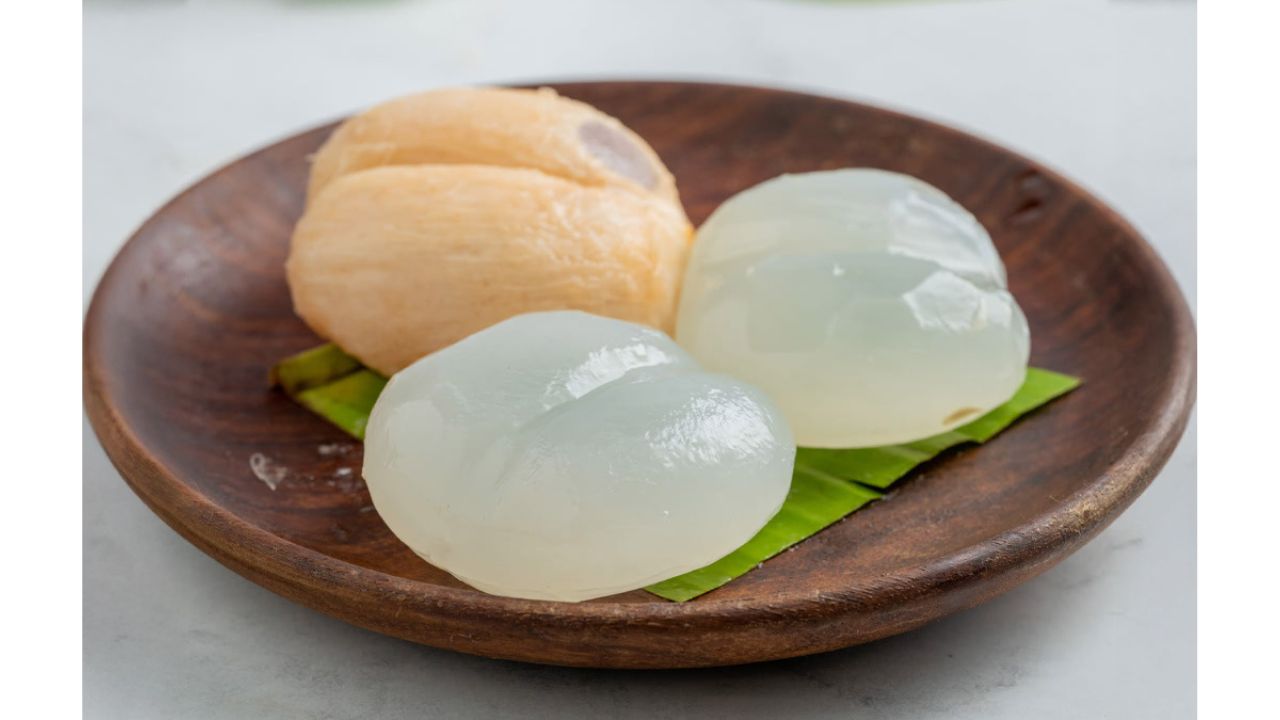Ice Apple Benefits and Side Effects
Ice Apple, commonly known as Tadgola in Maharashtra or Nungu in Tamil Nadu, is a translucent, jelly-like fruit harvested from the palmyra palm (Borassus flabellifer). Native to the Indian subcontinent and parts of Southeast Asia, this seasonal fruit is especially popular during the hot summer months due to its cooling properties. Despite its simplicity and delicate flavor, Ice Apple is a powerhouse of nutrients and offers a host of health benefits. However, like any natural food, it also has some side effects that one must be aware of.
Nutritional Profile of Ice Apple
Before diving into the benefits and side effects, understanding its nutritional content provides a solid foundation. A 100-gram serving of Ice Apple typically contains:
- Calories: 43 kcal
- Carbohydrates: 10.9 g
- Sugars: 9 g
- Dietary Fiber: 1.6 g
- Protein: 0.8 g
- Fat: 0.1 g
- Vitamin C: 8 mg (13% of RDI)
- Potassium: 229 mg
- Calcium: 27 mg
- Iron: 1 mg
It also contains trace amounts of Vitamin A, B-complex vitamins, and magnesium. With such a nutritional profile, Ice Apple supports various bodily functions while remaining low in calories.

-
Health Benefits of Ice Apple
-
Natural Body Coolant
One of the most celebrated benefits of Ice Apple is its ability to cool the body. Rich in water content and electrolytes, it helps regulate body temperature during hot weather. Consuming it in the summer can prevent heat strokes, dehydration, and excessive sweating. Click here
-
Aids Digestion
Ice Apple contains dietary fiber that helps in maintaining a healthy digestive system. It supports bowel regularity, prevents constipation, and reduces bloating. The fruit is gentle on the stomach and is often recommended for people with gastrointestinal problems.
-
Hydration Booster
Due to its high-water content and presence of electrolytes like potassium and sodium, Ice Apple is a great way to stay hydrated. It’s especially beneficial after workouts, physical exertion, or exposure to heat.
-
Promotes Skin Health
Ice Apple’s water-rich content and vitamins help in hydrating the skin and keeping it supple. Some people even use the pulp topically to treat sunburn, rashes, and skin irritation. Its antioxidant properties can also aid in reducing oxidative stress on the skin.
-
Good for Weight Loss
Low in calories and fat, Ice Apple is an excellent snack for those looking to lose weight. It satiates hunger while supplying essential nutrients and hydration, making it ideal for inclusion in a calorie-controlled diet.
-
Manages Blood Sugar Levels
Although slightly sweet, Ice Apple has a low glycemic index and is absorbed slowly in the bloodstream, preventing sudden spikes in blood sugar. This makes it a safer choice for people with diabetes when consumed in moderation.
-
Improves Liver Function
Ice Apple acts as a mild detoxifying agent. Its hydration and electrolyte-balancing effects help the liver function more effectively, flushing out toxins and improving metabolic processes.

-
Relieves Fatigue
Rich in natural sugars, B-vitamins, and minerals, Ice Apple provides quick energy without the crash that processed sugar often causes. It helps restore energy levels and combats fatigue, especially during hot and humid days.
-
Reduces Acidity
Ice Apple’s natural cooling and alkaline properties help neutralize stomach acid, providing relief from acidity and acid reflux. It is often consumed as a home remedy for gastric irritation.
-
Supports Pregnancy Health
Pregnant women in some regions consume Ice Apple to alleviate morning sickness, indigestion, and dehydration. The fruit provides gentle nourishment without overburdening the stomach.
-
Potential Side Effects of Ice Apple
Although Ice Apple is generally safe and beneficial, excessive or improper consumption may lead to certain side effects:
-
Digestive Issues When Overeaten
Eating too much Ice Apple at once can lead to stomach upset, bloating, or diarrhea. This is due to its natural sugars and high-water content, which, in excess, may disrupt normal digestive processes.
-
Microbial Contamination
Since the fruit is typically sold fresh and raw, improper handling can lead to bacterial contamination. If not stored or prepared hygienically, it may cause food poisoning or infections, especially in sensitive individuals like children and the elderly.

-
Risk for Diabetics (if overconsumed)
Although it has a low glycemic index, consuming Ice Apple in large quantities can raise blood sugar levels. People with diabetes should monitor their portion sizes and blood glucose responses accordingly. Click here
-
Allergic Reactions (Rare)
Some individuals may be allergic to Ice Apple, although this is uncommon. Symptoms might include itching, swelling, hives, or respiratory distress. If any of these occur, medical attention should be sought immediately.
-
Spoils Quickly
Ice Apple has a short shelf life and must be consumed within a day or two of harvest. Consuming spoiled fruit can lead to stomach cramps or vomiting. It should be stored in a cool place and eaten fresh for safety.
-
How to Eat Ice Apple Safely
To reap the benefits and minimize side effects, here are a few tips on safe consumption:
- Choose Fresh: Look for soft, jelly-like pods that are not too firm or slimy. Avoid fruit with an off smell.
- Clean Properly: Wash thoroughly in clean water before peeling to remove dirt or contaminants.
- Consume Soon After Purchase: Best consumed within a day or two of harvesting.
- Limit Quantity: 1–2 Ice Apples per serving is sufficient for most people.
- Avoid Mixing with Heavy Foods: Since it is a cooling and light fruit, don’t combine it with oily or heavy meals.
-
Culinary Uses of Ice Apple
While it is usually eaten plain and fresh, Ice Apple can also be enjoyed in various ways:
- Nungu Sherbet: A sweet, cooling drink made with Ice Apple, rose syrup, and chilled milk.
- Fruit Salads: Can be added to tropical fruit mixes for added texture and hydration.
- Smoothies: Blended with coconut milk, banana, or yogurt for a nourishing drink.
- Traditional Desserts: In South Indian cuisine, Ice Apple is often used in payasam and other milk-based puddings.
Conclusion
Ice Apple is a refreshing, nutritious, and natural fruit ideal for summer months and tropical climates. Its benefits—from hydration and digestion to skin health and weight management—make it a valuable addition to a balanced diet. However, moderation is key. Overconsumption or lack of hygiene in preparation can lead to digestive issues or spoilage-related problems.
As with any natural remedy or health food, individual responses may vary. Listening to your body, choosing fresh produce, and consuming in sensible amounts can help you enjoy Ice Apple’s many rewards while avoiding its few risks.

